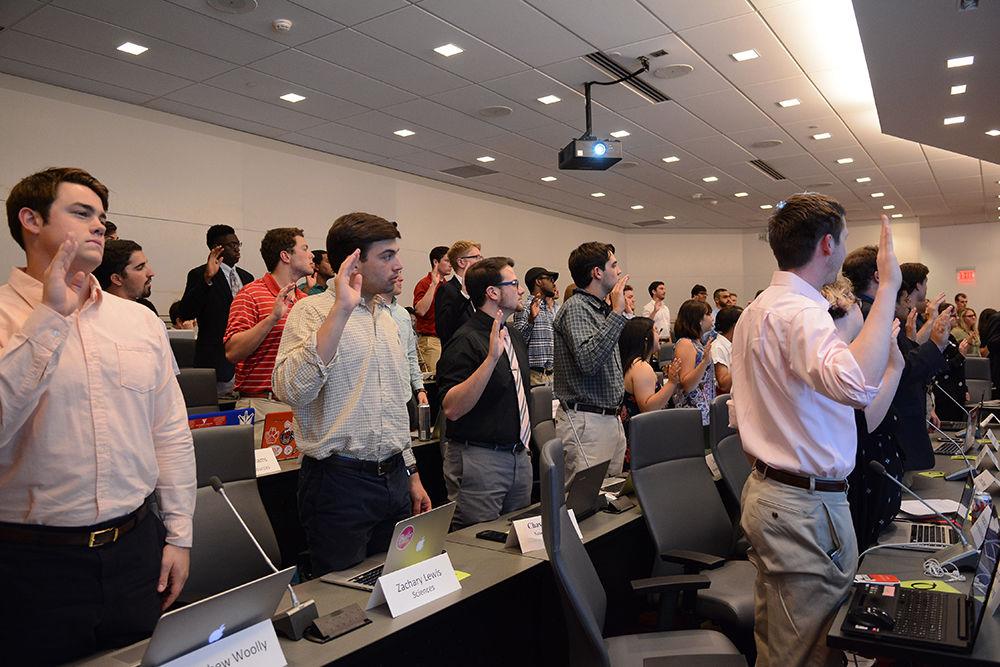The fall semester has just begun, but elections are already underway. On Friday, books opened for first-year students to file to run for office in NC State’s Student Government to represent their respective colleges as student senators.
Student Senate President, and fifth-year studying materials science and engineering, Mitchell Moravec discussed the election, and the expectations of student senators.
“Our Student Government, and specifically our Student Senate, is set up by colleges,” Moravec said. “We have reps from every college, as well as the first-year delegation. [This includes] all first-year and transfer students. Basically, [these students] will be representing the voices of their constituents.”
Board of Elections chair, and fourth-year studying applied mathematics, Anna Yarbrough discussed her role in the election process.
“This year, I’m the chair of the Board of Elections, and at the board, we have two things that we’re really in charge of and one of them is getting information to students about the election and when books open and books close for people running,” Yarbrough said.
Yarbrough also discussed the voting process.
“As far as voting, we’re really in charge of trying to get people to vote, so we’re in charge of getting information to people about [the elections], and then we’re also in charge of making sure that students run fair and just campaigns and that they’re following regulations and everyone is equally able to get their voice and name out there,” Yarbrough said.
Though the period for students to campaign does not begin until Sept. 4, first-year students can now access the official elections handbook with all of the information they will need to know to run a campaign on the official NC State Student Government website.
Yarbrough also discussed why she believes the elections handbook to be pertinent to students considering running for office.
“Read the handbook, and always ask the board of elections questions because it is so much easier to ask us if what you’re doing is appropriate and okay once you read the handbook and get the right information,” Yarbrough said. “You’ll also have more time to really by word of mouth talk to people about your campaign instead of coming to the board because you’ve messed up and then we have to have a hearing or go over regulation with you.”
The whole campaign process is exactly eight days long, and will end at 5 p.m. on Sept. 12.
According to Senate Secretary Sam Chan, a second-year studying political science, her own experience as a first-year running for Senate was empowering, and she hopes it can be the same for others.
“I was definitely nervous coming in and running as a first-year student mainly because I’d just gotten to the school and I was just getting adjusted and just starting to make my way around, but it was definitely very empowering to put my name out there, really put myself out there and talk to people,” Chan said.
Chan also discussed the campaigning process and how she believes students running for election can benefit from it.
“Running a campaign is very empowering, you learn a lot, and it’s definitely a process of trial and error,” Chan said. “You really learn what works well with students, and it’s a great way to get to know people and hear from students what they want changed [on campus].”
Chan also encouraged all first-years to consider running, even if they’ve never had past experience with student government in high school. Moravec offered similar encouragements to first-year students planning to run for office.
“I’ve been through a variety of first-year elections; one year we had seven people running for 10 seats, and there was one year where we had 35, so [my advice] is not being scared by it,” Moravec said. “Just jump right in. If you are really interested in the role and you are authentic about what you want to do for students, you deserve a place in Student Government, and I think you should go for it.”
The period to file for office ends Monday.








